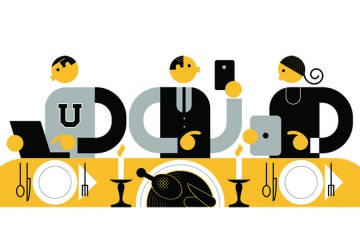Marketers have long known that consumers react favorably when products and services are given human attributes in their branding and advertising. Think of the Michelin Man, Allstate's "good hands," or the one-time Lowe's slogan "Let's build something together."
Since the 1990s, most researchers studying this phenomenon have agreed that it reflects a "brand as partner" relationship between consumer and product. Homeowner and lawn mower work together to create a neatly trimmed yard, for example.
But a recent study by a Johns Hopkins University researcher goes a step further, noting that certain consumers—materialists who strongly link possessions to happiness and who tend to have poor personal relationships—regard products with human attributes, or anthropomorphized products, as servants over which they can assert power and gain control that they otherwise lack in their lives. Think of the Scrubbing Bubbles slogan, "We work hard so you don't have to," or Burger King's "Have it your way."
According to Hyeongmin Christian Kim, an associate professor at the Johns Hopkins Carey Business School and lead author of the study, materialists prefer a servant brand to a partner brand when the brand is anthropomorphized and respond more favorably to an anthropomorphized servant brand than do nonmaterialists.
"Through their advertising, companies signal whether a brand is a partner or a servant," Kim says. "Most consumers, materialists and nonmaterialists alike, just passively take in this information; they don't waste a lot of cognitive energy on what it means. However, different consumers respond differently to the signals. When materialists encounter an anthropomorphized servant brand, they sense an opportunity to fulfill their need to dominate something. They would rather dominate other people, but socially that's not an easy thing to accomplish. So, for this type of consumer, the next best thing is to dominate a servant brand."
A key piece of the process, Kim notes, is that "the brand must have human attributes. That's what materialists are responding to in their desire to have control. The feeling wouldn't be the same toward an objectified brand [that is, one lacking human attributes] or an entirely inanimate object like a rock. It has to be anthropomorphized."
Nonmaterialists don't register this effect because they place no value in a master-servant relationship, Kim adds. They prefer partner brands, which lend themselves to relationships in which the consumer's trust develops over time.
Kim and co-author Thomas Kramer, an associate professor at the University of California at Riverside, conducted four studies with about 1,100 participants, gauging their desire to dominate relationships and their willingness to pay for products based on their presentation as a servant versus partner brand.
Marketers could benefit from the study's findings, says Kim, by pitching brands in a servant context to population groups and regions shown in previous studies to be more materialistic than others, such as younger consumers and residents of metropolitan areas. Conversely, older consumers and people who live in suburban, exurban, and rural areas could be enticed by brands positioned as partners, he says.
Posted in Politics+Society
Tagged marketing, consumer behavior











